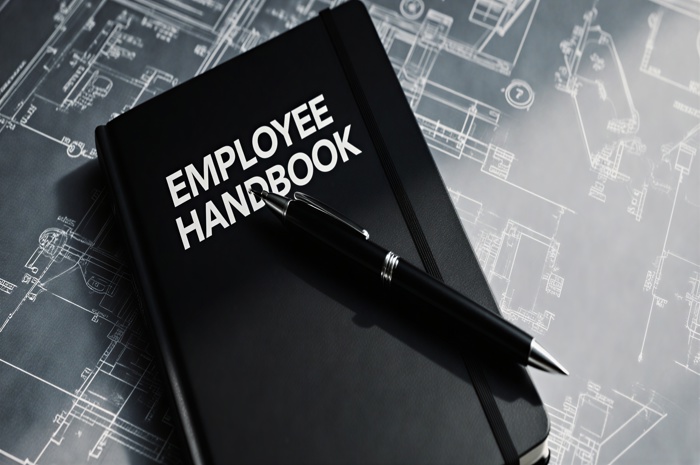After Incorporation a company you must file annual company returns to both Companies House and HMRC. It is important to note that they are two separate entities with different annual filing requirements, as well as filing due dates, so keeping good records of the different deadlines is key!
What should be filed to Companies House and when?
There are two annual company returns that have to be submitted to Companies House for each accounting period:
- Annual Accounts
All companies must send their annual accounts to Companies House every year, whether:
- private or public
- small or large
- trading or non-trading
The filing due date will depend on whether the accounts submitted are your company's first accounts after incorporation or subsequent accounts. If you submit annual accounts late, the law imposes an automatic penalty.
Filing deadline - First accounting period
Private companies as well as limited liability partnerships (LLP's) have 21 months from the date of incorporation to file their first annual accounts to Companies House. On the other hand, for public companies the filing due date is 18 months from the date of incorporation.
Filing deadline - Subsequent accounting period
In subsequent accounting periods, private companies and LLP's have 9 months from the end of the accounting period to submit their annual accounts to Companies House; again the filing due date for public companies is different - 6 months after the accounting period end date.
If you miss your filing deadline, then Companies House will issue a late penalty, the later you are missing your filing deadline the higher the cost of the late penalty will be.
| Length of period from the date accounts were due | Late Penalty for private companies and LLP's | Penalty for public companies |
| Not more than 1 month | £150 | £750 |
| More than 1 month but not more than 3 months | £375 | £1,500 |
| More than 3 months but not more than 6 months | £750 | £3,000 |
| More than 6 months | £1,500 | £7,500 |
Late penalties will be doubled if accounts are filed late in 2 successive financial years.
2. Confirmation Statements
All private limited companies, as well as limited liability partnerships (LLP's) whether active, non-trading or dormant must submit Confirmation statements to Companies House. Failing to submit annual Confirmation statement is a criminal offence, despite no late penalty being issued for filing after the deadline. If a Confirmation statement is not filed at all, Companies House will start legal action against the company and its directors and will dissolve (remove) the company from its register.
Confirmation statements filing due date is a year after the last statement was filed. A company can choose to file more than once a year but must file at least once. The filing deadline for a confirmation statement is 1 year and 14 days after the last confirmation statement was filed.
Company directors must ensure that accounts are filed on time, however, if there is a special reason why the accounts might be filed late (such as an unforeseen event), you can apply for more time to file your accounts, provided the filing due date has not passed.
What happens if a company do not file accounts at all?
If accounts are not delivered at all and no response is received to the communication sent by Companies House, they will have reasonable cause to believe that the company is no longer carrying on business activities, therefore, will take action to strike the company off the register. If Companies House is satisfied that the company is not carrying on business - they will publish a notice in the relevant Gazette stating their intention to strike the company off the register. If the registrar sees no reason to do otherwise, they will strike off the company not less than 2 months after the date of the notice. The company will be dissolved on publication of a further notice stating this in the relevant Gazette.
1. Corporation Tax
The annual company returns that HMRC expect companies to file are a Corporation tax returns (CT600's) accompanied by full set of accounts (Income statement and Balance sheet) for each accounting period. The filing due date of the CT600 Return is 12 months after the accounting period end date and if there is any corporation tax payable, it will be due within 9 months and 1 day after the company's accounting period end date.
For instance - for a company, which accounting period ends on 30 June 2024, the filing due date will be 30 June 2025 (12 months after the accounting period end date) and if there is any corporation tax payable, this will be due by 31 March 2025 (9 months and 1 day after the accounting period end date).
Important to note - even if your company is loss making, and there is no corporation tax payable, you will still be required to submit an annual company return of a corporation tax returns and accounts to HMRC on time; additionally, if your company is dormant, but you have received a notice to deliver a corporation tax return - you will need to meet the filing requirement or be subject to a late penalty if you do not file by the filing deadline.
HMRC will issue the following late penalties if you do not file your Company tax return by the filing deadline.
| Time after your filing deadline | Penalty charge |
| 1 day | £100 |
| 3 months | Another £100 |
| 6 months | HMRC will estimate your Corporation tax bill (known as 'tax determination') and add a penalty of 10% the unpaid tax |
| 12 months | Another 10% on any unpaid tax |
If corporation tax returns filing deadline are missed 3 times in a row, the £100 late penalty are increased to £500 each.
If you have a reasonable excuse, you can appeal against the late filing penalty.
2. VAT Returns
VAT registered businesses have an additional requirement of filing VAT returns to HMRC every three months, even if there is no VAT to pay or reclaim. The filing deadline for submitting your return online is usually one calendar month and 7 days after the end of the accounting period. This is also the deadline for paying any VAT amount due to HMRC. Your VAT return as well as payment deadlines can also be accessed in your VAT online account.
If you miss the filing deadline for filing VAT returns, HMRC will send you a VAT notice of 'Assessment of tax', telling you how much VAT they think you owe. You may also need to pay a surcharge or late penalty for submitting your return after the filing deadline or paying it late. You will get separate penalties for submitting VAT returns late and paying VAT due late. The amount you owe will be worked out differently, depending on which accounting period it is for.
Periods starting on or after 1 January 2023
Late submission penalties work on a points-based system, meaning that for each late submission you will receive a penalty point until you reach the penalty point threshold. When you reach this threshold, you will receive a £200 late penalty. You will also receive a further late penalty for each subsequent late submission. Limited companies submit VAT returns quarterly; therefore, the penalty point threshold is 4. The penalty point threshold is set by your accounting period and is the maximum points you can receive.
| Accounting period | Penalty points threshold |
| Annually | 2 |
| Quarterly | 4 |
| Monthly | 5 |
The late submission penalty rules do not apply if you submit late:
- Your first VAT return if you are newly VAT registered
- Final VAT return after you cancel your company's VAT registration
- One off returns, that cover a period other than a month, quarter or year
How to avoid late filing penalties?
Not filing annual accounts, Confirmation statements and annual company returns is a criminal offence and directors or LLP designated members can be personally fined, if they have not taken all reasonable steps for ensuring that those filing requirements will be complied with before the filing deadline.
As a company's director it is important to make sure that your annual company return are submitted by the filing due date to avoid a late penalty, to ensure this try:
- Allowing enough time for your filings to reach Companies House and HMRC
- Checking when the company's filing due dates are and marking your calendar accordingly
- Setting reminders and also sign up to Companies House free email reminder service





















